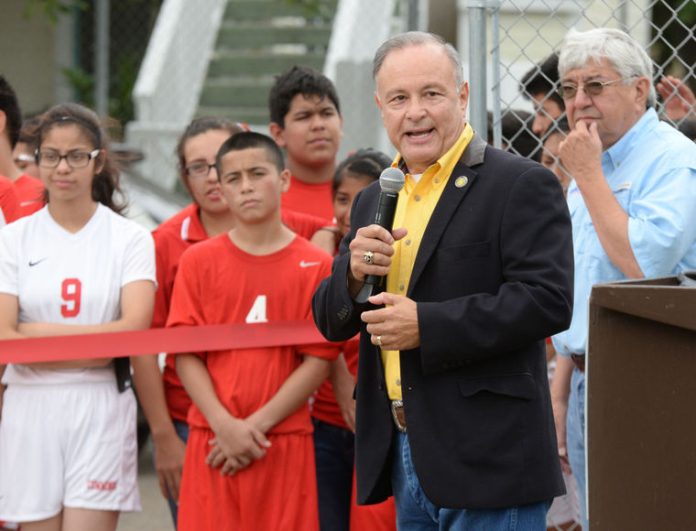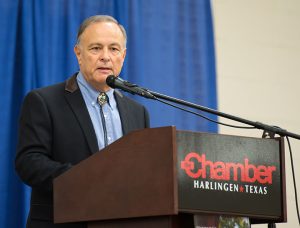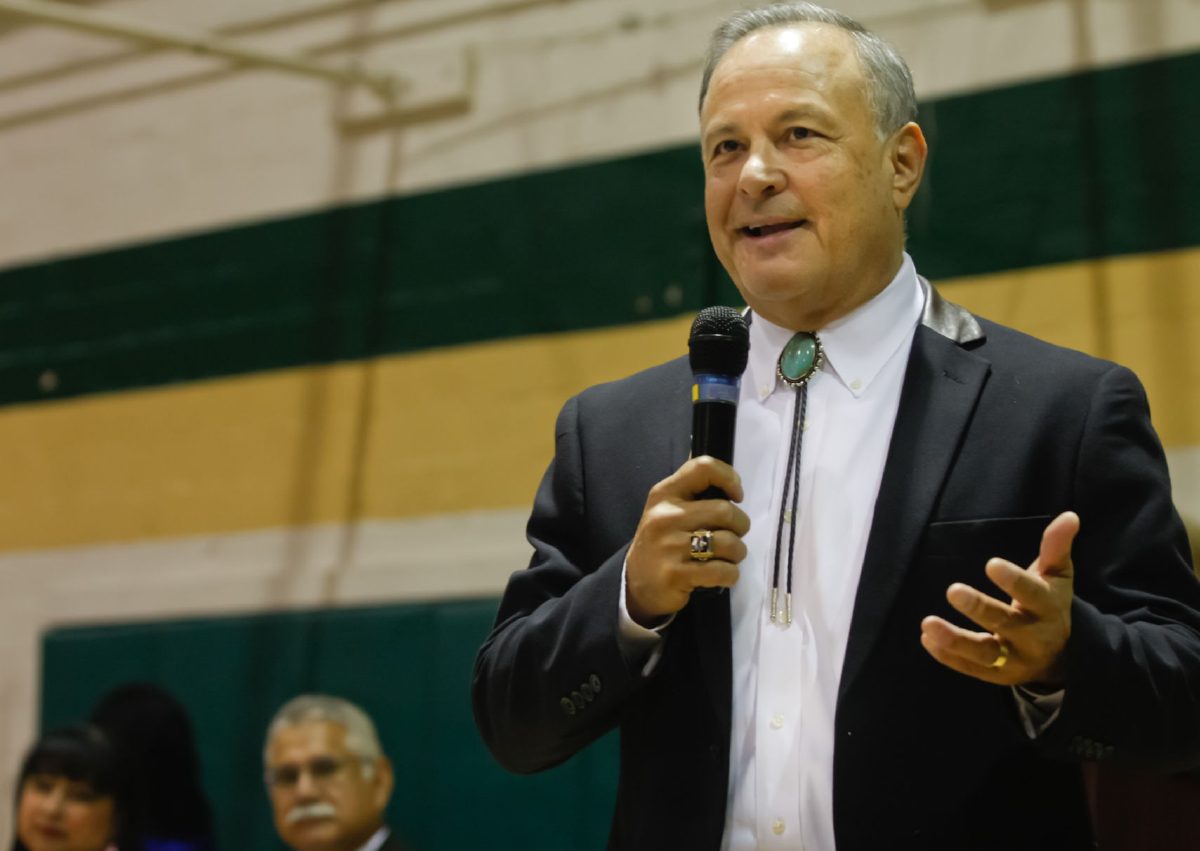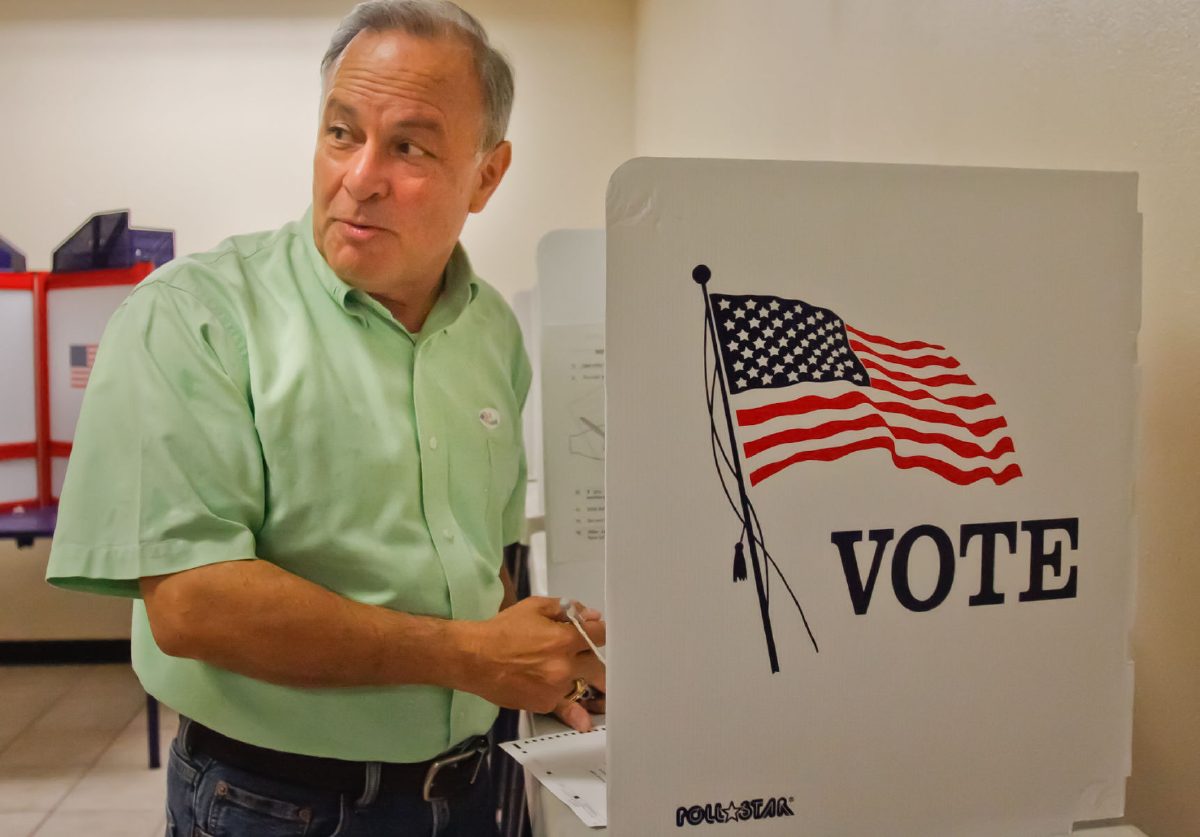
|
Only have a minute? Listen instead
Getting your Trinity Audio player ready...
|

Carlos H. Cascos, former Cameron County commissioner, county judge and Texas secretary of state, was widely respected by those of every political stripe, according to those who knew him well.
The Matamoros native and lifelong Cameron County resident, but for his nearly two years in Austin as secretary of state, Cascos died suddenly on South Padre Island on Wednesday. He was 71.
Precinct 3 County Commissioner David Garza and County Administrator Pete Sepulveda Jr., both of whom worked with Cascos for many years, describe a public servant much less motivated by politics than by what he thought would benefit his constituents.
Garza, who first got to know Cascos when Garza served on the board of the San Benito Consolidated Independent School District and Cascos was the district’s auditor, said he soon came to appreciate Cascos’ abilities as an auditor and bookkeeper.
“I came to appreciate his frankness and transparency in the work that he did for the school, and then of course I appreciated it even more at the county, because I felt really comfortable with his eyes on the budget,” said Garza, who considers himself a fiscal conservative as well.
“You can’t spend what you don’t have,” he said. “That was his philosophy.”
Garza served alongside Cascos for two years as a fellow commissioner, then another eight years after Cascos was elected county judge in 2006. For that election, Cascos switched his political affiliation from Democrat to Republican.
“I was one of the few Democrats that endorsed him, which got me in trouble with folks sometimes, but I felt I was going to support the person, not the party,” Garza said. “I didn’t make a mistake, because we were able to do a lot of great work together.”
That the highest elected office of a deeply Democratic county was occupied by a Republican didn’t seem to matter a lot then, though it did tend to open doors for the county in the halls of the Republican-controlled state government — such as when it came to funding from the Texas Department of Transportation (TxDOT) for big road projects, said Garza, who has been closely involved with transportation since his early days as commissioner.
“Carlos was my liaison to all of those agencies when he was county judge,” he said. “He had everybody’s ear up there (in Austin). … I was his transportation guy.”

County Administrator Pete Sepulveda Jr. was first hired by the county in 1998, as director of the international bridge system, and began working with Cascos (first elected commissioner in 1991) at that time. After taking office as county judge in January 2007 (succeeding Democrat Gilberto Hinojosa in the position), Cascos created the office of county administrator, modeled on the city manager form of government cities often have, and appointed Sepulveda to it. He served in that role until 2015, then temporarily took over as county judge after Cascos’ appointment as secretary of state.
While it’s common for an incoming leader to break with the direction and priorities of the previous administration, which interrupts continuity, Cascos took a different approach, Sepulveda said.
“Even though he knew that Judge Hinojosa had started some of the projects, (Cascos) did not hesitate to continue to work on projects that were needed in the community, because it was the right thing to do,” he said.
Sepulveda said many people are unaware of Cascos’ key role in pushing the West Rail Relocation Project forward, guiding it through the environmental clearance process, design and construction. Expansion of Veterans International Bridge at Los Tomas from four to eight lanes was another big project Cascos took over and saw through to completion during his administration, Sepulveda noted.
Another example is the conversion of U.S. 77 to interstate-quality roadway all the way from Corpus Christi to Brownsville, a major series of multi-year projects getting close to being done.
“He was the one who told staff we need to get aggressive and we need to push TxDOT to fund the different segments, the different projects, so we can get a seamless interstate into Cameron County and the Rio Grande Valley,” Sepulveda said.
When Cascos became county judge, voters had already passed a $10 million referendum to use the money to leverage funds from the Federal Highway Administration (via TxDOT) for transportation projects. Under his leadership, the $10 million was leverage into $400 million for construction projects under the designation “Project Roadmap,” Sepulveda said.
Right-of-way acquisition and the first feasibility study for the Flor de Mayo Bridge, which received a Presidential Permit for construction May 30, were also accomplished during his tenure, Sepulveda said. The county’s Regional Mobility Authority, still a fledgling entity in 2015, received its marching orders from the new judge and ultimately put together $2 billion worth of projects, including the multi-faceted East Loop Project. Sepulveda is also CCRMA executive director.
Also under Cascos’ leadership, the county created a bi-national master plan with the city of Matamoros, the state of Tamaulipas, Mexico, and Mexico’s federal government to identify regional infrastructure needs — the first of its kind on the southwestern U.S.-Mexico border, Sepulveda said. Cascos signed the very first agreement with SpaceX over its proposed launch site at Boca Chica, he said. Sepulveda said these are just a few of the many projects Cascos championed to advance the county’s interests.
“He wasn’t one to take credit, but he really provided the political leadership to allow us to be able to accomplish what we did,” he said.

At the same time, Cascos was a meticulous steward of taxpayer dollars, Sepulveda said.
“We couldn’t spend a dime without justifying why we needed to invest that dime, what the return was going to be for the constituents,” he said, adding that his old boss was well respected by all county department heads, all across the state of Texas and by the state’s federal delegation.
“He left a legacy,” Sepulveda said.
Garza said that despite the difference in political party affiliation and inevitable disagreements over policy, Cascos and he agreed on nearly everything when it came to moving the county forward and benefiting constituents. A model public servant in Garza’s opinion, Cascos had a big heart — the most important attribute a public servant can possess, Garza said.
“He was really, really a great guy,” he said. “I can’t say enough. I was personally fortunate to have been a friend of his and served together with him.”
Despite the no-nonsense public demeanor and strictness when it came to numbers, Cascos also had a lighter side, Garza revealed.
“Whenever he was in Austin for business he always went to hear the Spazmatics if they were playing,” he said. “We’d go and sit in a beer garden after our meetings and just sit back and relax and just enjoy those guys. He was a big Spazmatics fan. He’s going to be sorely missed, is all I can say.”



